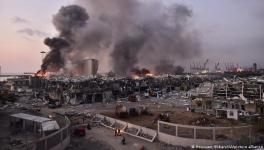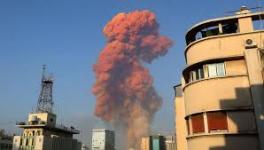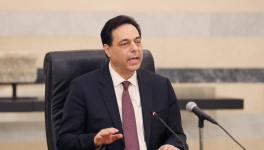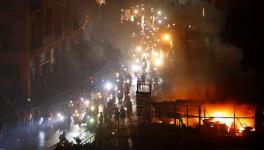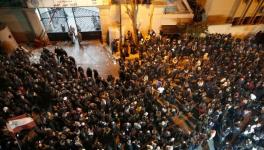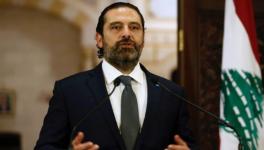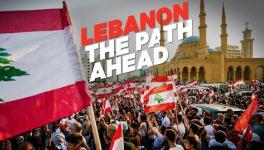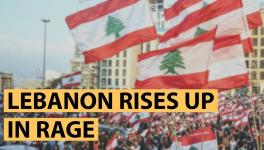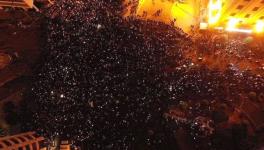Hasan Diab Wins Vote of Confidence in Lebanese Parliament Amid Popular Protests
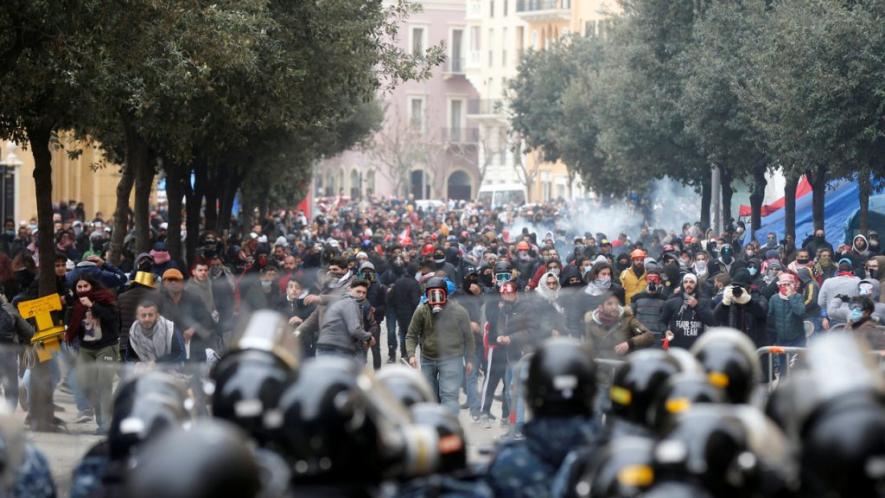
Demonstrators take part in a protest seeking to prevent MPs and government officials from reaching the parliament for a vote of confidence, in Beirut, Lebanon, February 11, 2020.
On February 11, Tuesday, hundreds of protesters attempted to march towards the Lebanese parliament, as prime minister Hassan Diab was securing the approval for his new cabinet and economic plan. The 120-member parliament approved Diab’s proposal in a vote of confidence, with his government securing 63 votes in its favor and 20 MPs voting against. There was one abstention.
The vote was largely on party lines with Hezbollah, Amal and the Free Patriotic Movement voting in favor of the government, while former prime minister Saad Hariri’s Future Movement and its allies voted against it. A large number of MPs could not make it to the parliament for the vote due to the protests.
The protesters were stopped near the parliament building by the security forces. Tear gas and water cannons were also fired, injuring more than 200. Various progressive sections in Lebanon have rejected Diab’s economic plan as a mere continuation of the corrupt policies implemented by the previous regime.
Hanna Gharib, secretary general of the Lebanese Communist Party, said on Twitter that the party has no trust in the new government and that the “battle [on the streets] is open until a change in power and corrupt political system.”
Protests in Lebanon have been going on since October last year against the failure of successive governments to deal with the economic problems of the country. Former prime minister Saad Hariri had to resign after weeks of protests on October 29.
Hasan Diab, a university professor and ex-education minister of Lebanon, was selected to be the head of a new government in December last year. He was sworn in as the prime minister on January 21.
Speaking in the parliament before the vote, Diab assured that his priority would be to tackle the economic problems of the country. He emphasized that Lebanon needs to preserve foreign currency required to maintain the flow of imports. Banks in Lebanon have put strict regulations on the withdrawal of foreign currency, particularly US dollars, since the last few months.
Addressing some of the core demands of the protesters, Diab has promised to undertake crucial financial and administrative reforms, tackle corruption and secure the independence of the Lebanese Judiciary.
Lebanon has extremely high public debt due to the neoliberal economic policies implemented by the previous governments. Protesters are also angry due to the poor service delivery in the country. Rising poverty and unemployment levels have made the youth disillusioned with the current political establishment. The prevailing corruption and inefficiency of the political elite have been cited as the main reasons behind these problems, and the protesters have demanded broader systemic changes.
Get the latest reports & analysis with people's perspective on Protests, movements & deep analytical videos, discussions of the current affairs in your Telegram app. Subscribe to NewsClick's Telegram channel & get Real-Time updates on stories, as they get published on our website.









